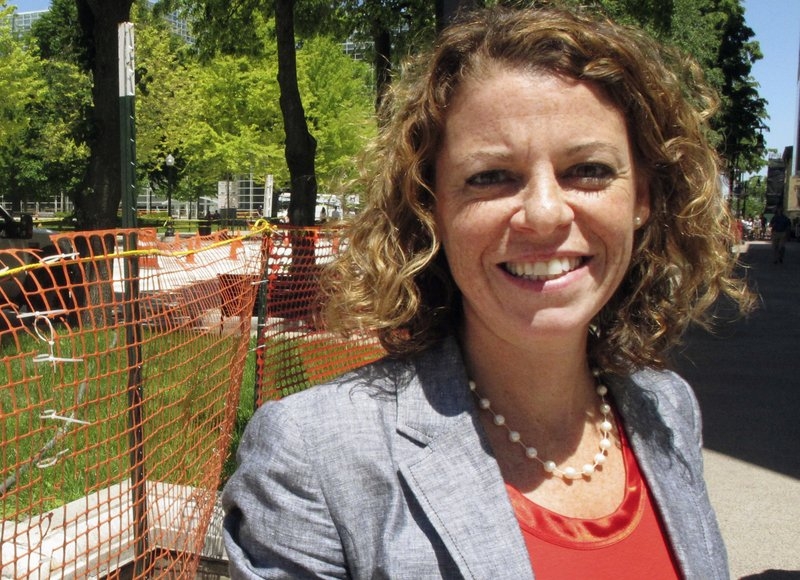National
Dallet’s arrival brings hope of friendlier Supreme Court

MADISON, Wis. (AP) — When Rebecca Dallet joins the Wisconsin Supreme Court next month, she is looking forward to building strong relationships with her fellow justices after a tumultuous campaign in which she blasted the court as being “broken and dysfunctional.”
Dallet takes her seat on Aug. 1, weakening conservative control from 5-2 to 4-3.
The court has struggled with internal conflicts in recent years that have spilled over into the public, most famously in 2011 when one justice put his hands around the neck of another following an argument.
But court watchers say they are hopeful Dallet’s arrival, coupled with the retirement next year of Justice Shirley Abrahamson, will weaken long-held personality conflicts and cloakroom dramas leading to a more collegial court.
“I’ve spoken to every member of the court, they’ve all been very welcoming,” Dallet, a Milwaukee County circuit judge, told The Associated Press in an exclusive interview. “I’m confident I can have a good working relationship with each of them. I think we will disagree, but that’s part of the job.”
Dallet won election in April after a bruising campaign in which she slammed the conservative court as “broken and dysfunctional” and ran a television ad attacking President Donald Trump. But Dallet said despite that criticism, “we can all find a way to work together.”
Attorneys who regularly argue before the court were optimistic as well.
“I think everybody is hoping that that happens on the court because at least the general perception is that there are not good communications amongst all the justices,” said prominent liberal Madison attorney Lester Pines. “A new personality can really change the way a court operates in some ways. … Rebecca Dallet has very high social skills, a very outgoing person.”
Former conservative Supreme Court Justice Jon Wilcox, who served on the court from 1992 to 2007 and voted for Dallet’s opponent, said it “may take some doing” for Dallet to overcome the rhetoric of the campaign.
“She’ll come on to the court with whatever baggage was created,” Wilcox said. “It will be up to the court and her to say, ‘OK, now you’re here. Let’s try to work with one another.’”
One thing that may help is that Dallet is personal friends with the daughter of Chief Justice Patience Roggensack, Milwaukee County Circuit Judge Ellen Brostrom. Brostrom initially supported Dallet in the race but withdrew her backing after Dallet criticized the court and how it was being run.
Dallet said she remains friends with Brostrom and has a good relationship with Roggensack because of it.
Roggensack declined to be interviewed.
Dallet replaces Justice Michael Gableman, a conservative known for his aggressive questioning of attorneys and sometimes gruff demeanor during oral arguments. Gableman opted against seeking a second term. He declined an interview request, but said in a statement that conflict is inevitable on the court.
“None of us has been perfect in the way we have addressed those conflicts and nothing about the departure of one justice and the addition of another is going to change the underlying paradigm of the court,” Gableman said. “My hope is that lessons from the past — both positive and negative — will guide all members of the court to a more consistently positive way of addressing conflicts when they inevitably arise.”
Abrahamson has another year on the court after deciding against seeking re-election in 2019. She has been a target for conservative critics, who argue that she’s been the force of dysfunction on the court for years. Long-simmering discord boiled over in 2011 and then-Justice David Prosser placed his hands around the neck of Justice Ann Walsh Bradley following an argument.
Anger over Abrahamson’s leadership as chief justice led the Republican-controlled Legislature to pass a constitutional amendment, approved by voters in 2015, changing the way the chief justice is selected. The conservative-controlled court quickly replaced Abrahamson with Roggensack.
Forcing Abrahamson out as chief justice did not help the court function in a collegial way, Pines said.
“You’d have to be a real Pollyanna to say that was no big deal,” he said. “That was a big deal.”
Abrahamson, who is being treated for an undisclosed illness, declined an interview request but her spokeswoman said she “looks forward to working with a new colleague in the upcoming term.”







